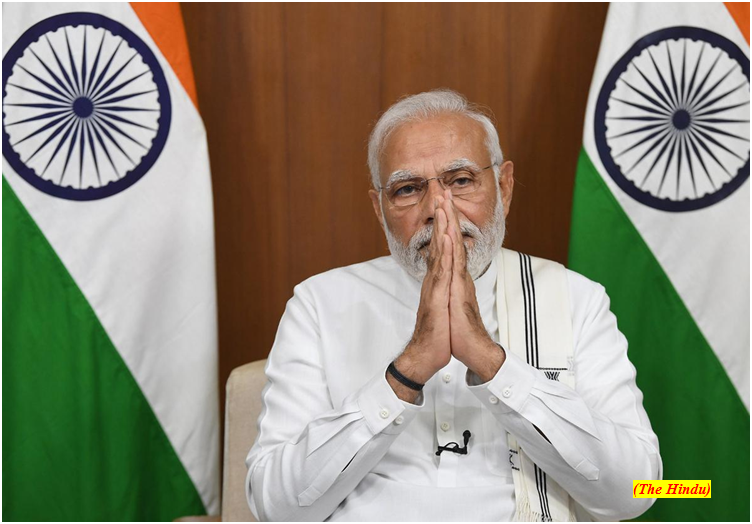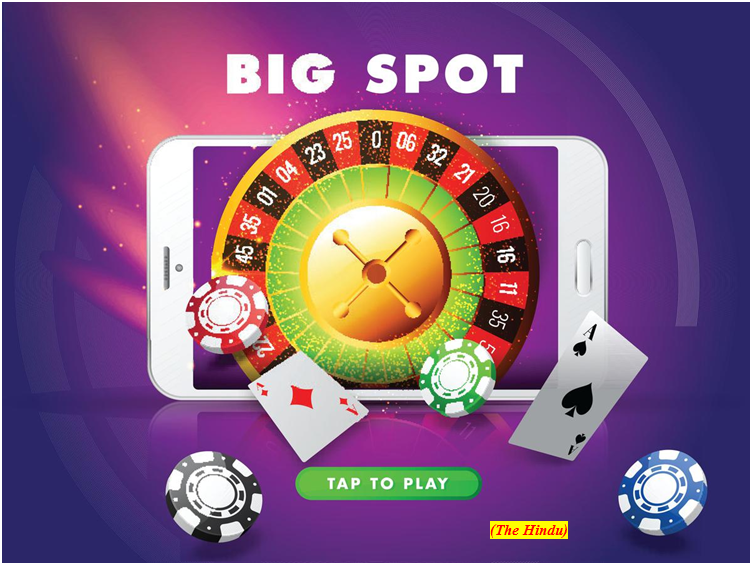PM Modi outlines vision of science at 108th Indian Science Congress (GS Paper 3, Science and Tech)

Why in news?
- Recently, the Prime Minister of India inaugurated the 108th Indian Science Congress (ISC) being held in Nagpur via video conferencing.
- It was inauguratedat the RashtrasantTukdoji Maharaj Nagpur University
- The theme of 108thISC is “Science and Technology for Sustainable Development with Women Empowerment”.
Key Highlights of PM’s address:
- The Prime Minister of India outlined the vision for science for the next 25 years, urging researchers to make the country self-reliant and focus on converting their knowledge to bring about change in everyday life.
- He also stressed on strengthening scientific processes, focus on emerging areas such as quantum technologies, data sciences, development of new vaccines, stepping up efforts on surveillance for newer diseases and encouraging youngsters to take up research.
- He made a strong pitch for creating an institutional framework and a mentor-mentee (guru-shishya) system that could build upon the successes of talent hunts and hackathons to attract youngsters to science.
- He also highlighted the opportunities for private companies and startups by associating with research labs and academic institutions.He urged researchers to focus on quantum computing and emerge as world leaders in the upcoming field.
India’s GII:
- Since India is home to 17 to 18 per cent of the world's population, progress of such a large number of people will lead to a surge in global advancement as well
- India is using scientific means for progress and its consequences are visible, noting that India jumped to 40th in the global innovation index from 81 in 2015 in a list of 130 countries.
Background:
- The first session of the Indian Science Congress was held in 1914 at the premises of the Asiatic Society, Calcutta.
- The event is organized by the Indian Science Congress Association (ISCA).
- ISCA is an independent body functioning with the support of the Department of Science and Technology (DST) in the central government.
- Dubbed as the largest gathering of scientists and students in the country, the Science Congress is an annual five-day event from January 3 to 7.
How is India moving to regulate online gaming?
(GS Paper 2, Governance)
Why in news?
- The Ministry of Electronics and Information Technology (MeitY) has released draft amendments in relation to online gaming. The idea is to ensure that online games are in conformity with Indian laws and to safeguard users against potential harm.
- The draft proposes a self-regulatory mechanism which, in future, may also regulate the content of online gaming.

What changes are being proposed?
- The proposals are aimed at safeguarding the interests of users by introducing set procedures and norms for verification and user engagement.
- The draft proposal defines what constitutes an ‘online game’. It is “a game that is offered on the internet and is accessible by a user through a computer resource if he makes a deposit with the expectation of earning winnings”. ‘Winning’ constitutes any prize, in cash or kind, intended to be given to the participant “on the performance of the user and in accordance with the rules of such online game”.
- This addresses the discourse in the sector about the definitions of a ‘game of skill’ and ‘game of chance’. The term ‘game of skill’ had been used in the Public Gambling Act (1867) but had not been defined.
Greater transparency:
- The game operators would have to verify users on the platform and provide them with the terms of services.
- For the monetary aspect of it, operators would have to inform the user about the policy related to withdrawal or refund of their deposit, measures taken for its protection, the manner and distribution of winnings and the fees and other charges to be paid by the user.
- They would also have to be informed about the risk of potential financial loss and addiction associated with the game. The self-regulating bodies’ framework must also include safeguards to protect children.
- Addiction is to be combated using repeated warning messages should the user exceed a reasonable duration while playing a certain game.
What about the platforms?
- Before hosting or publishing a game, the platform would have to verify it from the self-regulatory body it is associated with. It would then be required to carry a registration mark on all its recognised online games.
- The platform is expected to appoint a key management personnel or senior employee as its Chief Compliance Officer who would be entrusted with coordinating with law enforcement agencies to ensure compliance with their orders or requisitions.
- In addition to this, the platforms are also expected to additionally appoint a ‘Nodal Contact Person’ to facilitate the necessary coordination at any point of the day. Further, it must have in place an appropriate mechanism for receipt and resolution of grievances.
- The complainant must be able to track the status of the same using a unique ticket number.The gaming intermediaries must have a physical address in the country which must be published on its website and app.
What about the self-regulating bodies?
- MeitY is entrusted with the responsibility of recognising and if required, unrecognising all self-regulated bodies under the proposed framework.
- The applications of the desirous candidates would be examined on criterions including the number of companies who are its members, its track record in promoting responsible online gaming, the absence of conflict of interest and suitability of its board of directors.
- The latter must be independent and eminent people in the space with relevant expertise in public policy, public administration, psychology, medicine or consumer education, online gaming or any other relevant field.
- The self-regulatory bodies would also be assessed for their capacity in terms of deployment of technology, expertise and other relevant resources to ensure compliance from members.
- They are required to examine a game in light of the member’s adherence to due diligence norms and relevant laws.
What are some of the concerns?
- Despite appreciating the government’s move to introduce these new rules, some experts are concerned about certain discrepancies in the new initiative.
- The rules still bucket all gaming intermediaries into a broad category irrespective of size or risk.
- They all require similar compliances, including the need to have India based officers. This can disproportionately burden young start-ups, and make it difficult for global players to start their services in India.
What are some other countries doing to regulate online gaming?
- China has placed strict limits on the time young people may spend playing online games. Online gaming in the country is now only available to people younger than 18 from 8 p.m. to 9 p.m. on Fridays, Saturdays, Sundays and public holidays.
- Before an online game can be distributed in China, it must obtain approval and an International Standard Book Number (ISBN) from China’s National Press and Publication Administration (NPPA).
- In the U.S., Internet casino gaming remains illegal in every state that doesn’t explicitly legalise the games.
- Germany’s “Youth Protection” laws aimed at violent games pushed developers to replace realistic red blood with a green version, for example, and Australia has sought to ban games for including depictions of everything from assault to marijuana use.
No need for extra curbs on free speech of Ministers: SC
(GS Paper 2, Judiciary)
Why in news?
- The Supreme Court recently, held that there is no reason to impose “additional restrictions” on the right to free speech of Ministers, and the government is not vicariously liable for disparaging remarks made by them, even if the comments are traceable to state affairs or meant to protect the government.

Justice B.V. Nagarathna’s view:
- In a separate opinion, Justice B.V. Nagarathna differed with the leading judgment on the point, saying a Minister’s statement, if traceable to any affairs of the state or for protecting the government, can be attributed vicariously to the government by invoking the principle of collective responsibility, “so long as such statement represented the view of the government too”.
- If such a statement is not consistent with the view of the government, then it is attributable to the Minister personally.
PM, CMs have no disciplinary control over members of the Council of Ministers:
- A Prime Minister or a Chief Minister in a country where there is a multi-party system cannot afford to crack the whip every time a Minister makes a statement which may either be in bad taste or disparaging.
- The bench said a “strong Prime Minister or Chief Minister will be able to drop any Minister out of the Cabinet”, but “in a country like ours where there is a multiparty system and where coalition governments are often formed, it is not possible at all times for a Prime Minister/Chief Minister to take the whip, whenever a statement is made by someone in the Council of Ministers”.
- Governments which survive on wafer-thin majority sometimes have individual Ministers who are strong enough to decide the very survival of such governments. This problem is not unique to our country.
Conclusion:
- The four judges said their observations did not mean that any public official, including a Minister, could get away after making irresponsible statements, even bordering on hate speech.
- They were only discussing whether the government could be held vicariously liable under the principle of “collective responsibility” for the disparaging statements of a Minister.
- Answering the question in the negative, it said the collective responsibility was that of the Council of Ministers.




